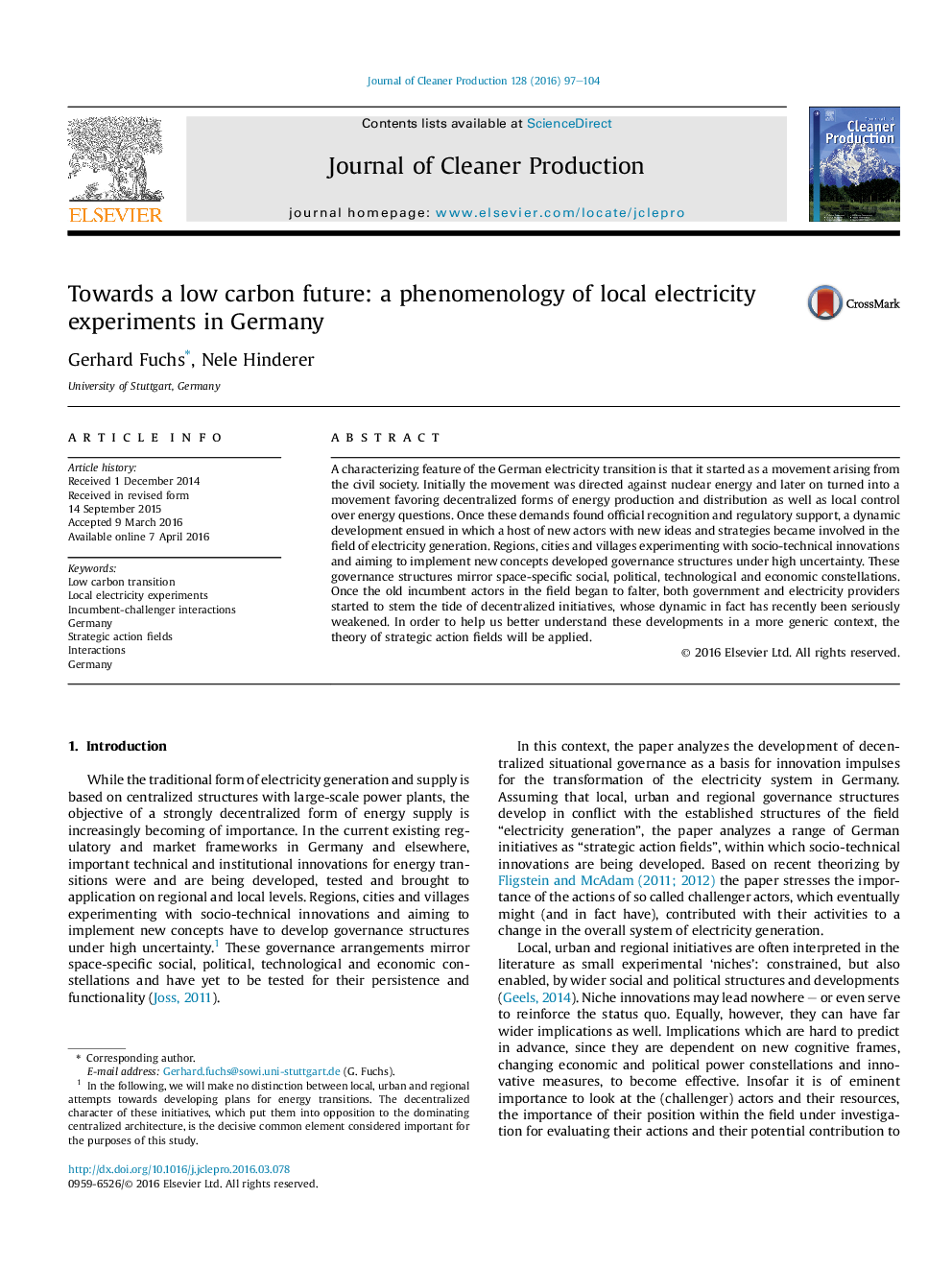| Article ID | Journal | Published Year | Pages | File Type |
|---|---|---|---|---|
| 1744133 | Journal of Cleaner Production | 2016 | 8 Pages |
Abstract
A characterizing feature of the German electricity transition is that it started as a movement arising from the civil society. Initially the movement was directed against nuclear energy and later on turned into a movement favoring decentralized forms of energy production and distribution as well as local control over energy questions. Once these demands found official recognition and regulatory support, a dynamic development ensued in which a host of new actors with new ideas and strategies became involved in the field of electricity generation. Regions, cities and villages experimenting with socio-technical innovations and aiming to implement new concepts developed governance structures under high uncertainty. These governance structures mirror space-specific social, political, technological and economic constellations. Once the old incumbent actors in the field began to falter, both government and electricity providers started to stem the tide of decentralized initiatives, whose dynamic in fact has recently been seriously weakened. In order to help us better understand these developments in a more generic context, the theory of strategic action fields will be applied.
Related Topics
Physical Sciences and Engineering
Energy
Renewable Energy, Sustainability and the Environment
Authors
Gerhard Fuchs, Nele Hinderer,
